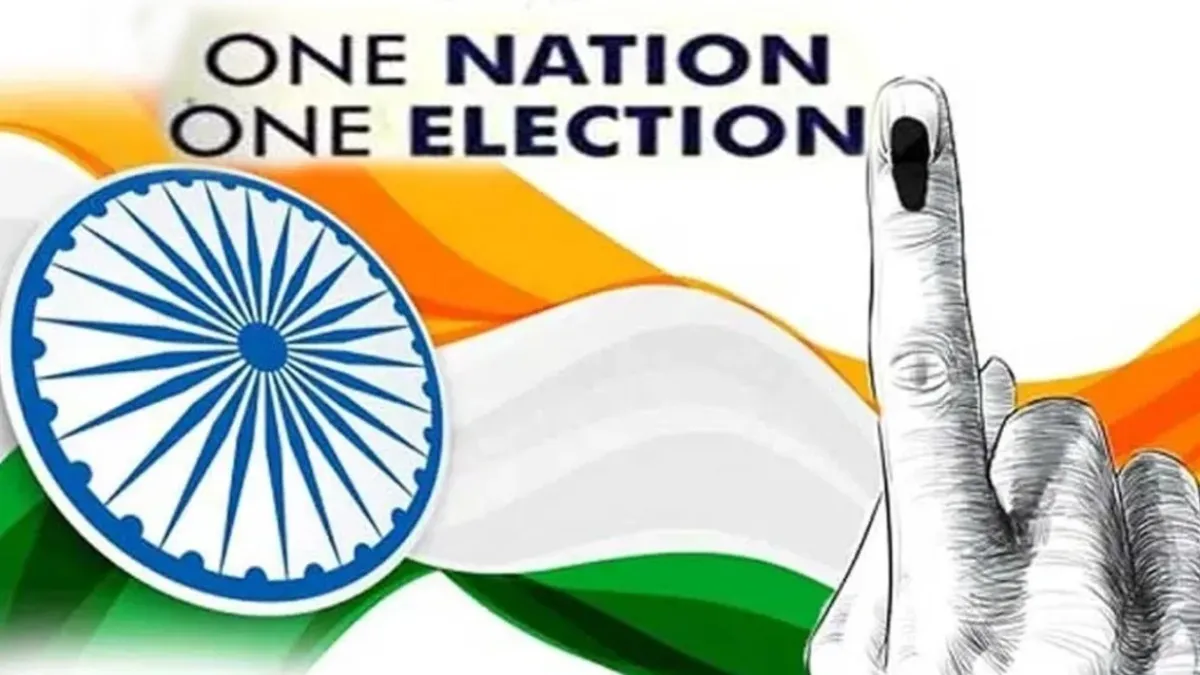Electoral Reform or Federal Overreach? The One Nation, One Election Debate Heats Up at Hyderabad's Lit For Life

Staff correspondent, TwoCircles.net
New Delhi: The controversial One Nation, One Election (ONOE) sparked intense debate at the Lit For Life Dialogue 2025 in Hyderabad, where eminent journalists Neerja Chowdhury, Rajdeep Sardesai, and Telangana Congress chief B. Mahesh Goud shared their views. The panel discussion was moderated by Swathi Vadlamudi of The Hindu.
Chowdhury acknowledged that while ONOE was "not a bad idea", it required significant thought and debate. She pointed out that while the middle class may support the concept, the rural electorate values direct engagement with political leaders, believing such interactions are essential for holding leaders accountable for local issues.
“For five years, they will not show their face to us?” she said, as reported by The Hindu.
The veteran journalist emphasised that ONOE needs serious national discourse before it becomes a rushed decision, like demonetisation. She further stressed that the problem of "big money" dominating elections must be tackled for the process to be truly free and fair.
India Today Consulting Editor Rajdeep Sardesai took a critical view of the ONOE. He suggested that Prime Minister Narendra Modi's push for it was an attempt to create a more presidential-style system in India.
“He tried it in 2024, but the public rejected it,” Sardesai said and cited the country's diversity and regional differences. He proposed that true electoral reform would involve proportional representation and the right to recall.
He implied that the ONOE might be a distraction from pressing issues like the rising costs of elections, which skew fairness and equity.
Representing the Congress party, B. Mahesh Goud opposed the ONOE and called it "impractical, undemocratic and a threat to federalism". He argued that each state should retain the right to decide when to hold its elections and be allowed for more local control and autonomy.
Sardesai, throughout the conversation, highlighted the evolving nature of communication in politics. He pointed out that since Rajiv Gandhi's time, the electorate has come to expect a certain level of meritocracy.
While dynastic politics persists across party lines, he credited Prime Minister Modi with mastering communication in a way that resonates with India's growing aspirational class.
The ONOE bill, which has already got Union Cabinet's nod, is set to be introduced in the Lok Sabha on Monday (December 16). Union Law Minister Arjun Ram Meghwal will table the Constitution (129th Amendment) Bill, 2024, which seeks to pave the way for simultaneous Lok Sabha and state assembly elections.
The ruling Bhartiya Janata Party (BJP) has been a strong proponent of holding national and state elections together. On Thursday, the Union Cabinet, led by Prime Minister Narendra Modi, approved the Constitutional Amendment Bill as part of the government's push to make “One Nation, One Election” a reality. The Cabinet also gave approval to two other draft legislations, including one to align provisions in laws related to Union territories that have legislative assemblies.
The proposed Constitution (129th Amendment) Bill aims to amend key provisions of the Indian Constitution to enable simultaneous elections. Once passed, the President will issue a notification marking the first sitting of the newly elected Lok Sabha, which will be considered the "appointed date." The tenure of the Lok Sabha and state assemblies will then be synchronized, with both serving five-year terms from this date.
In the event of premature dissolution of either the Lok Sabha or a state assembly, the new assembly will serve only the remainder of the term. The bill also notes that simultaneous elections were last held in 1967, and since then, frequent dissolutions have disrupted this practice.
The government argues that simultaneous elections will reduce the financial and logistical burden of holding separate elections across the country. However, opposition parties have raised concerns about the practicality of such a massive exercise, especially regarding its potential impact on smaller regional parties and the federal structure of India.
